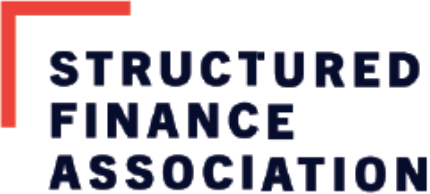New York Fed Revises TALF 2020 MLSA and FAQs
Provided by Structured Finance Association
By Stuart M. Litwin, Partner and Co-Head of Structured Finance practice at Mayer Brown, James J. Antonopoulos, Partner at Mayer Brown, and Christy L. Freer, Banking & Finance Counsel
As the TALF Program continues in operation through the end of 2020, the New York Fed has recently made several changes to the program terms. These changes reflect the evolution of the program in response to its usage by market participants, and seek to preserve the original intent and effective functioning of the program.
Included below is a summary of the material changes to the program made on October 22, 2020.
New cross default and borrower full recourse provisions apply to TALF loans effective as of November 5, 2020.
In the previous iterations of the TALF Master Loan and Security Agreement (“MLSA”), a TALF Loan could become immediately due and payable, and full recourse to the Borrower, only in connection with Collateral Enforcement Events and other triggers related to that particular TALF Loan. The TALF Loans of a particular Borrower were not cross-defaulted.
Under the revised MLSA, all TALF Loans of a particular Borrower (whether the applicable TALF Agent for such TALF Loans is the same as or different from the TALF Loan relating to the relevant event) may now be accelerated and become full recourse to the Borrower if either (i) any statement or information contained in the Lending Agreement or furnished by such Borrower in connection with any TALF Loan is untrue as to any material fact or omits any material fact to make the same not misleading or (ii) such Borrower fails to disclose to any applicable TALF Agent each Material Investor and Control Person of the Borrower or any subsequent change to its Material Investors. The new provisions also provide for acceleration and full recourse to the Borrower for all of its TALF Loans if the Borrower does not deliver the required conflicts of interest, solvency and inadequate credit accommodations certifications to a TALF Agent prior to the first loan request date through that Agent, or does not notify such Agent at any time if the information included in such certifications changes or any changes to its Material Investors.
The effective date of these changes is November 5, 2020. By pledging any collateral, requesting a TALF Loan or otherwise incurring additional obligations under the MLSA after November 5, 2020, a borrower will be deemed to agree that these cross-default and full recourse provisions apply to all TALF loans of such Borrower, including TALF loans extended to such borrower before November 5, 2020.
These changes put the onus on Borrowers to ensure the submission of accurate and timely diligence information to all of its TALF Agents as required under the MLSA.
Defaults related to Borrower’s obligation to pay interest on TALF Loans.
TALF Borrowers have a 30-day grace period with respect to interest payments on TALF Loans if the interest received on the underlying pledged ABS is insufficient to make the corresponding TALF Loan interest payment. After the grace period, if interest payments on TALF Loans remain delinquent, the New York Fed will enforce its rights against the related collateral.
Under the previous version of the MLSA, there was no delinquency and no related Collateral Enforcement Event if any interest payment insufficiency was solely due to a timing difference between the interest payments on the TALF Loan and the interest payments under the terms of the related underlying ABS.
The new changes clarify that beginning November 5, 2020, the timing differential is not considered a delinquency only so long as the amount of interest accruing on the pledged ABS during the relevant loan accrual period is at least equal to the interest payment associated with the TALF Loan. If the scheduled interest accrual on the pledged ABS is less than the interest payment associated with the TALF Loan, then such deficiency will constitute a “Scheduled Interest Deficiency” under the MLSA that must be paid within the 30-day grace period described above. The New York Fed, however, may in its sole discretion defer the payment of any Scheduled Interest Deficiency. These changes integrate the consideration of the timing differential into the Interest Deficiency Notice and grace period framework that previously applied only in the context of other interest deficiency amounts.

